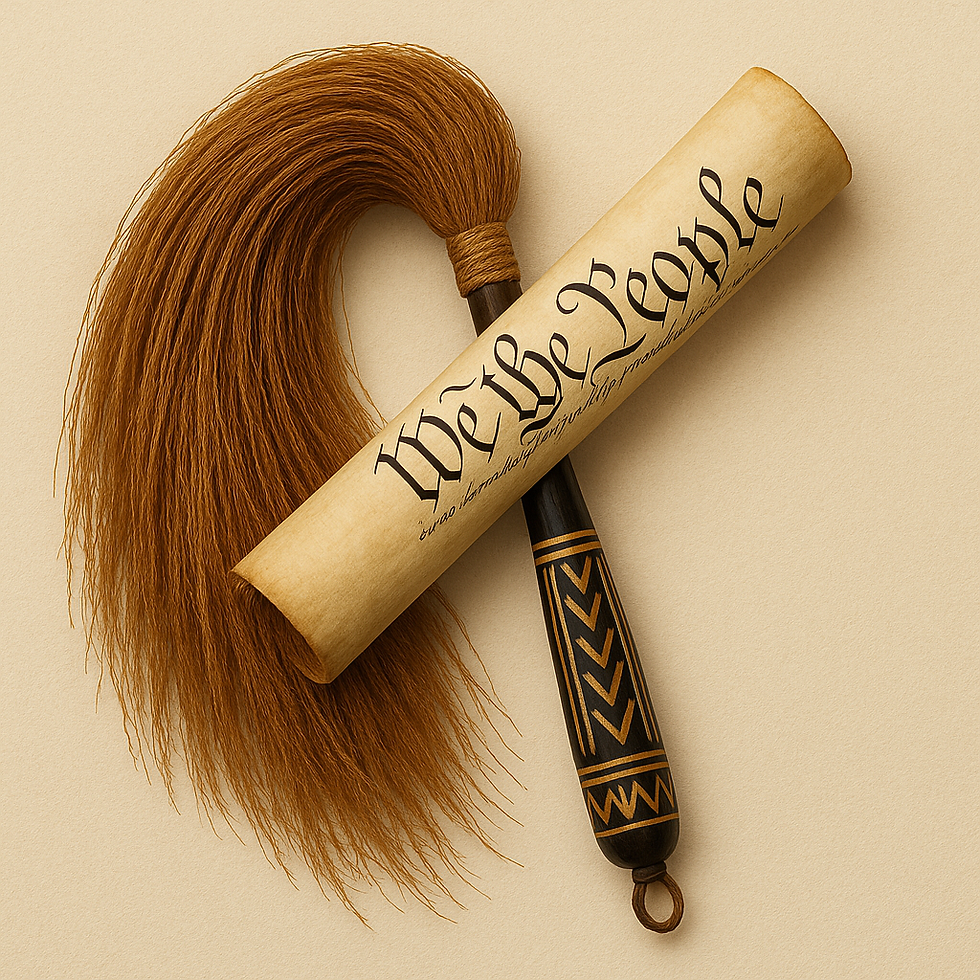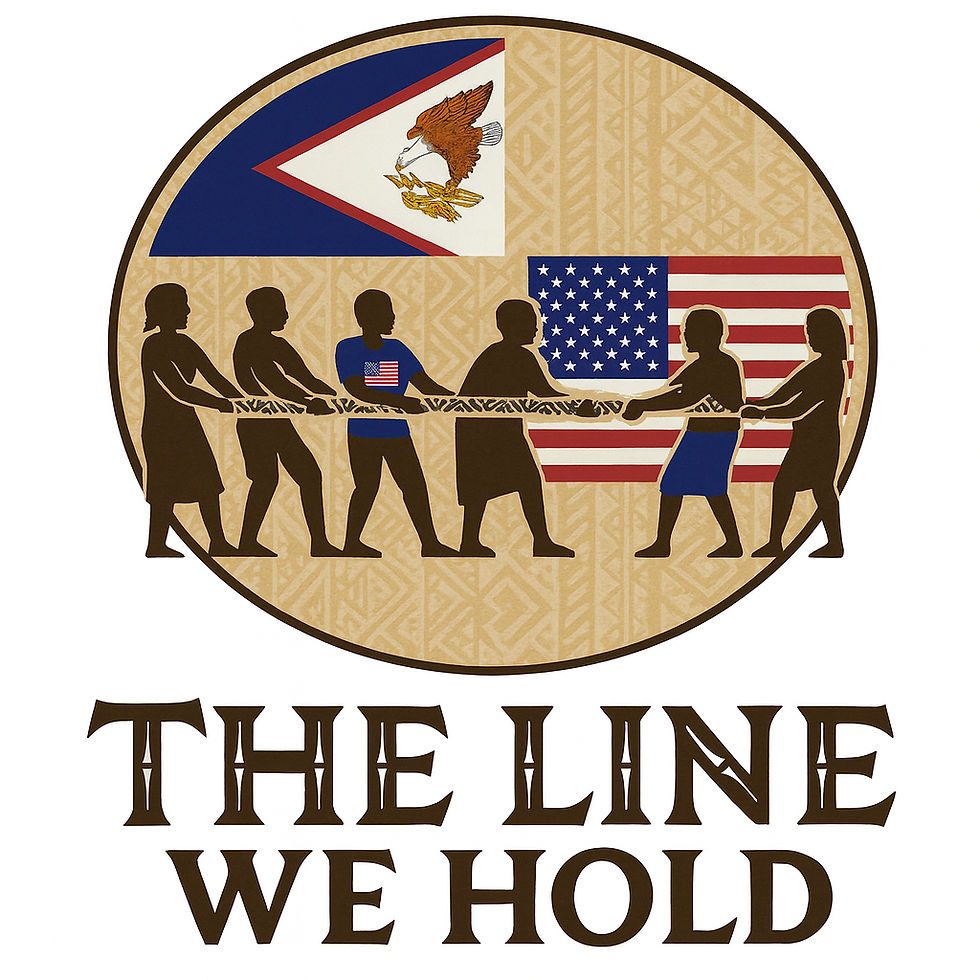In the Courtroom, In Our Lives: American Samoa's Balance
- GenesisTauRichardson
- Aug 24, 2025
- 3 min read

In every criminal case, the courtroom is split in two. On one side stands the prosecution. They don’t walk in as individuals. They walk in carrying the weight of the people, the state, or the government. Their responsibility is to uphold the law, to argue in the name of the collective, and to ensure that the rules that bind us all are not broken without consequence.
On the other side stands the defendant. Just one person, often scared, sometimes silent, but mostly never alone. Their defense counsel sits beside them, not to argue for the collective, but to stand guard over the individual. Our role is to protect rights that belong to every single person, no matter who they are or what they are accused of. To make sure that the voice of one is not drowned out by the power of many.
This is the criminal legal system of the United States. Prosecution for the people, defense for the person. Yet in American Samoa, this system does not sit neatly divided. Instead, it reveals the very life we live as Samoans: the constant work of honoring both the collective and the individual.
For the prosecution, the task is heavy. Their voice must be loud and clear. They are charged with representing the interests of the people. Yet they are also part of this same culture, deeply connected to the families and villages of the very defendants they prosecute. They know the need for accountability, but they also understand the importance of peace within the community. Balancing firmness with compassion is no easy task, and yet they carry it out with professionalism, committed to their responsibility to the people.
The defense, too, carries a difficult burden. Their duty is to stand firmly for the individual, ensuring that every right is preserved and due process is honored. But defense counsel also knows they are serving the same villages, families, and people who make up the community. The challenge is real: to defend one without disregarding the many. And yet, day after day, they rise to that challenge, standing firm for the person while never forgetting the fabric of the collective.
And so the balance often falls to the judges. In American Samoa, the judges are Samoan-bred, grounded in the same traditions and values as those who appear before them. They hear the loud voice of the government and the quiet voice of the individual, and they must find the balance where justice lives. Their role is not easy, but it is essential. Ensuring that neither law nor culture is abandoned, and that fairness prevails is no easy feat.
This is not conflict of interest. Rather, it is the weight of responsibility. It is the reality of carrying out justice in a small island community where everyone is connected, and where law and culture meet in every courtroom. And despite the difficulty of the task, each side fulfills its duty. The prosecution stands for the people. The defense guards the person. The judges seek the balance.
For me, this balance is not abstract. It is a balance I see every day in the faces of defendants who walk into court carrying the weight of mistakes, and in the prosecutors who must speak firmly while quietly carrying their own ties to family and village. I see it in defense counsel who sit beside the accused, defending the rights of one but knowing that their greater responsibility is to a community that longs for safety and peace. And I see it in the judges, who bear the hardest burden of all: deciding not only by law but also by wisdom, so that justice does not divide us but keeps us whole.
This is the life of a criminal case. But it is also the life of an American Samoan. We live this balance beyond the courtroom in our families, in our villages, in the way we are taught to respect both the group and the individual. Every hearing, every argument, every ruling is simply a reflection of that deeper truth.
I have come to believe that this is both our challenge and our gift. The challenge is the weight of constantly carrying two worlds. That is, the voice of the people and the rights of the person. The gift is that we are never allowed to forget either. And maybe that is what makes us stronger, what keeps us honest, and what holds us together.




Comments